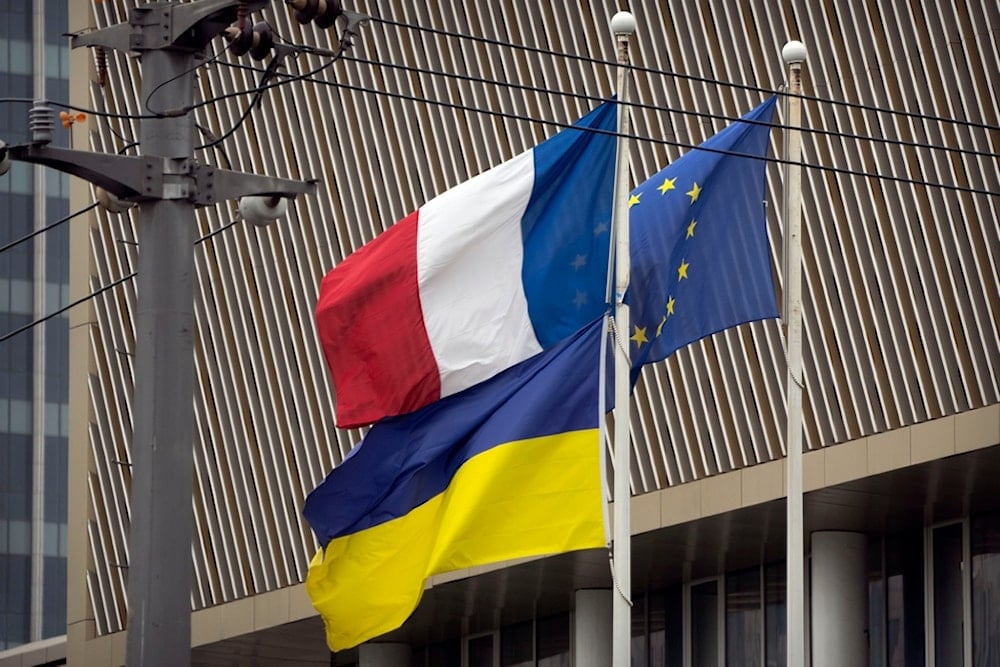France to fund €1.4Bln from frozen Russian assets for Ukraine military
A similar political agreement on the use of frozen Russian assets was reached by G7 leaders during a June meeting in Italy.
-

The flags of France, Ukraine, and the European Union fly at the French Embassy in Beijing, Wednesday, May 17, 2023. (AP)
France will allocate a portion of 1.4 billion euros ($1.5 billion) from revenues generated by frozen Russian assets to purchase military equipment for Ukraine, the French defense ministry announced on Friday.
This move is part of a broader effort by EU member states to provide ongoing support to Kiev in its conflict with Russia.
The ministry stated that France would participate in implementing a new support measure for Ukraine under the so-called European Peace Facility. Under the auspices of the European Commission, the initiative aims to expedite the procurement of military equipment, including ammunition, artillery, and air defense systems from French industry.
"Alongside other (EU) member states, the ministry... will take part in implementing the new support measure for Ukraine from the European Peace Facility," a statement read.
Read more: Czech Rep. to buy ammunition for Ukraine using frozen Russian assets
Since the start of the war, around 200 billion euros of Russian assets have been frozen across the 27-nation European Union, with approximately 90 percent held in Belgium, home to the international clearinghouse Euroclear.
In May, EU member states agreed to use the interest generated from seized Russian central bank assets to support Ukraine, marking the first tranche of 1.5 billion euros approved in July.
The interest revenue is expected to generate between 2.5 and 3 billion euros annually, which will be used to arm Ukraine and contribute to post-war reconstruction efforts. However, Russia has condemned the EU's decision as "illegal."
A similar political agreement on the use of frozen Russian assets was reached by G7 leaders during a June meeting in Italy.
Read more: Release of frozen Russian assets tied to Ukraine peace process: Meloni
Experts argue that the use of frozen Russian assets to support Ukraine is unlikely to have an immediate or significant direct impact on the US dollar or the euro in the short term.
However, the broader economic context of the prolonged conflict, coupled with sanctions, may contribute to fluctuations in both currencies over time.
In February, the International Monetary Fund (IMF) warned that the seizure of Russian assets could have severe consequences for the global financial system.
This concern stems from the potential erosion of trust in the global monetary order, as such actions could set a precedent that might destabilize confidence in the security of international financial holdings, particularly for countries with significant foreign reserves held abroad.

 3 Min Read
3 Min Read









